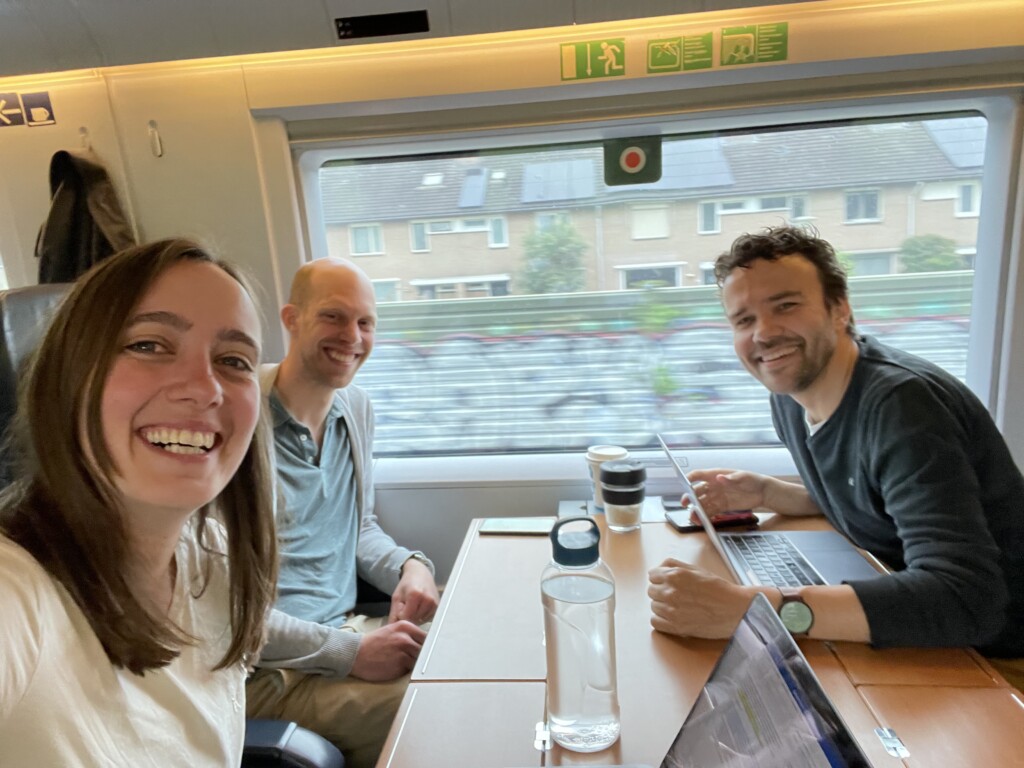Conference / Cycling
Velo-city 2023 Summary
Each year the European Cyclist Federation organizes the Velo-city Conference, a coming together of people from all facets of the cycling industry to discuss the work being done to improve conditions and make cities wonderful places to hop on a cycle. This year’s event was held in Leipzig, Germany, from May 9–12, and four Mobyconners were there to contribute their expertise and learn from industry leaders around the world. Erik Ooms, Lennart Nout, Dagmar Köhler, and Babet Hendriks share their reflections from the conference.
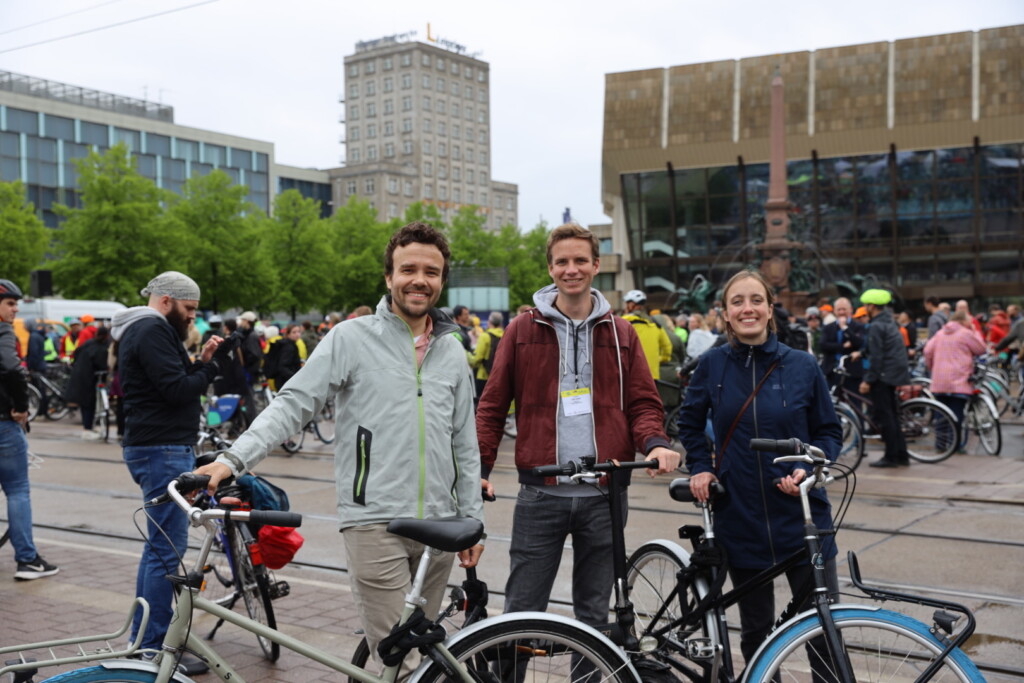
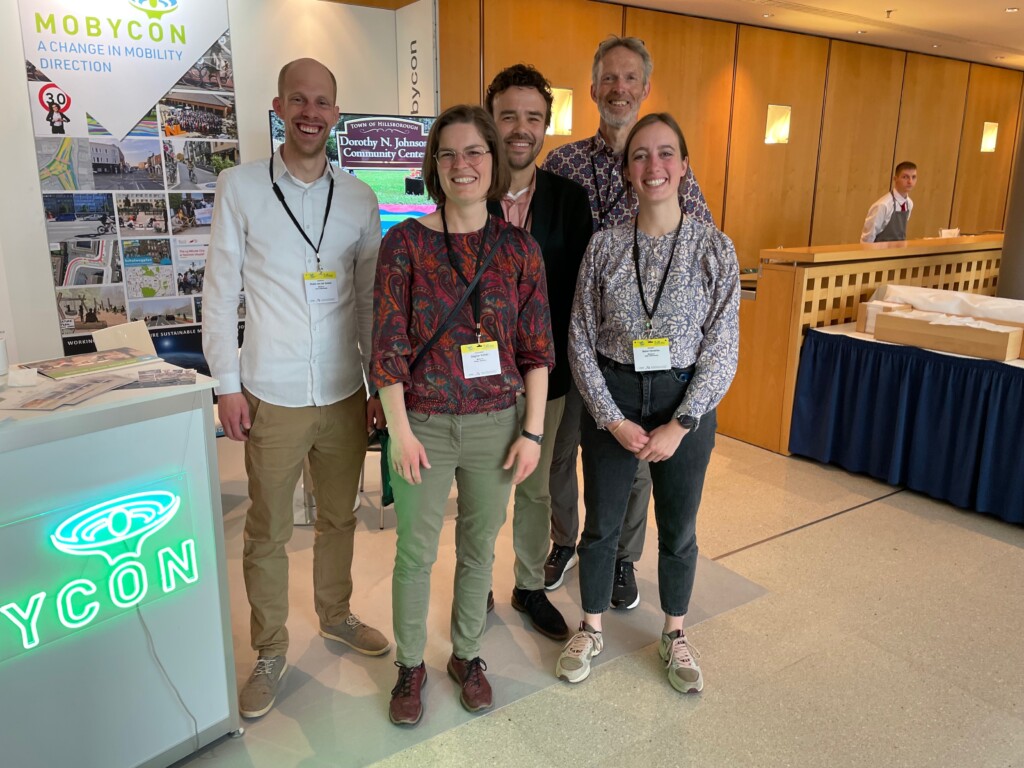
Erik’s reflections:
Cycling is big! And its complexity is increasing. Where maybe a decade ago, people at cycling conferences were mainly talking about infrastructure planning or technical elements, it is now about so much more. At the Velo-city this year, speakers presented their views on topics such as equality, urban planning and innovation management. Together they aimed to establish a new narrative around cycling. A stronger and more holistic one. Cycling as an empowerment tool for people with a limited budget. Cycling as a tool for providing opportunities for the young and the old to participate in society. Cycling as an essential component in making it possible to redesign our cities and public space for human interaction. And cycling contributing to so many UN Sustainable Development goals. From gender equality to climate change, from reducing poverty to improving quality of life in rural areas.
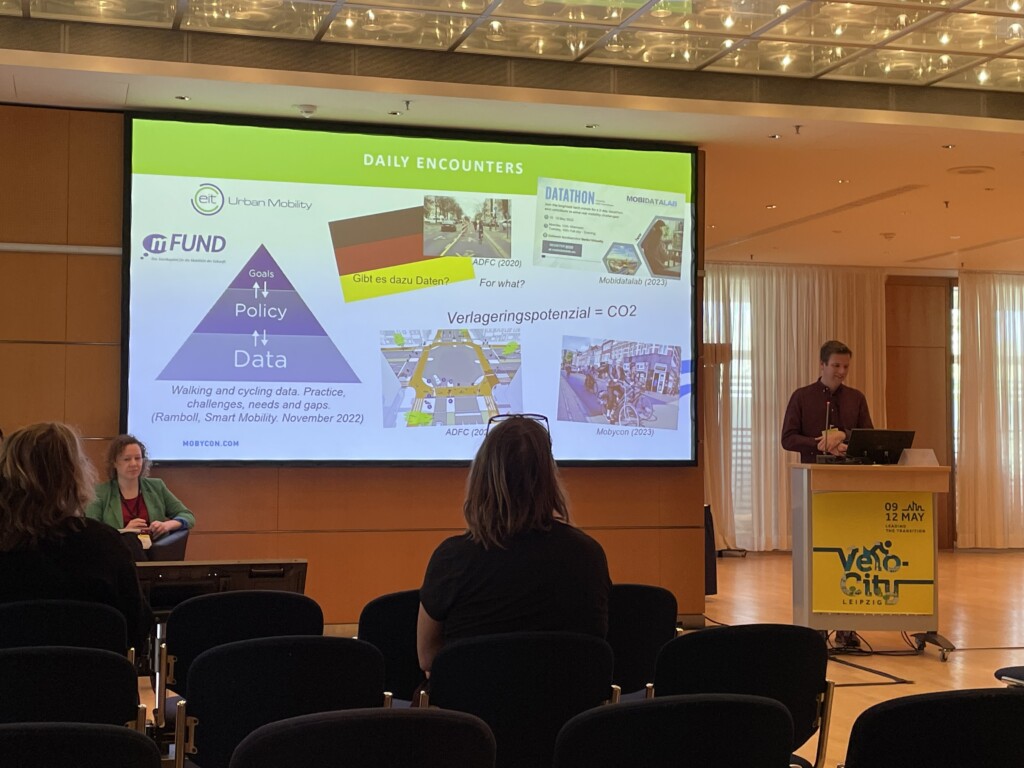
I think we have a first draft of our new and better narrative, and now it is about making it more concrete. We need to spread our new narrative to people working in the field of mobility, but also in so many other fields, such as in social policy, climate change policy, innovation policy or urban development policy. And we should not forget to also make sure that the new narrative lands sufficiently in the strategies, programmes and projects of these different domains the coming years. This way we can actually create impact.
I was happy to be part of the Velo-city conference in Leipzig, and also to be able to contribute with my vision and ideas during one of the sessions. A big thanks to the organization.
One last remark: I really liked the Velo-city song, and I think it should have been played more often (and also should have been recorded with a clearer sound quality 😀).
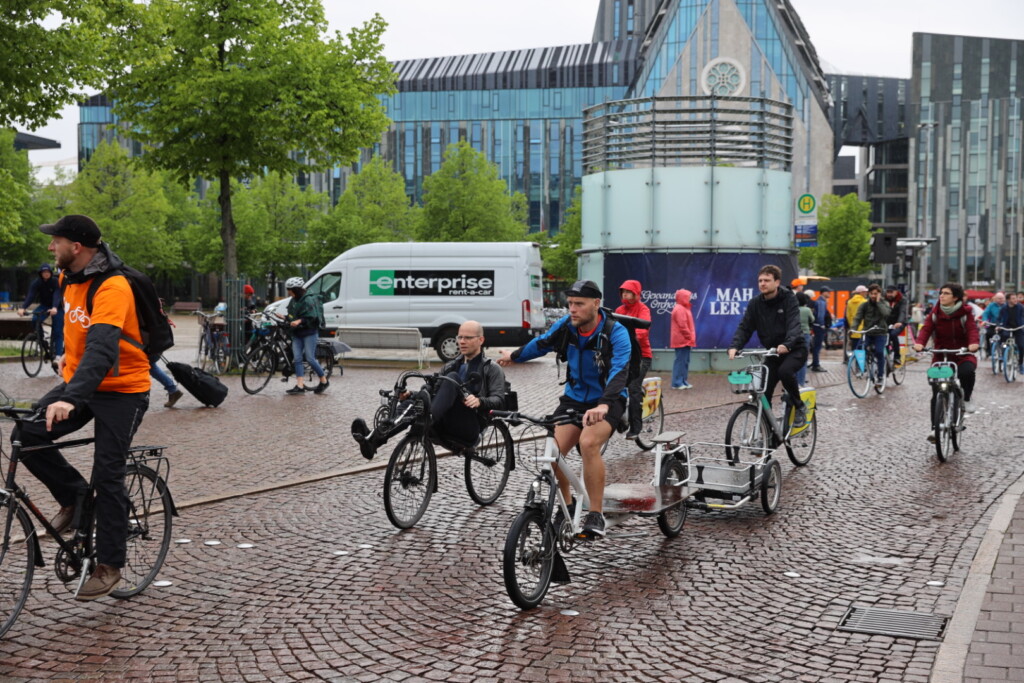
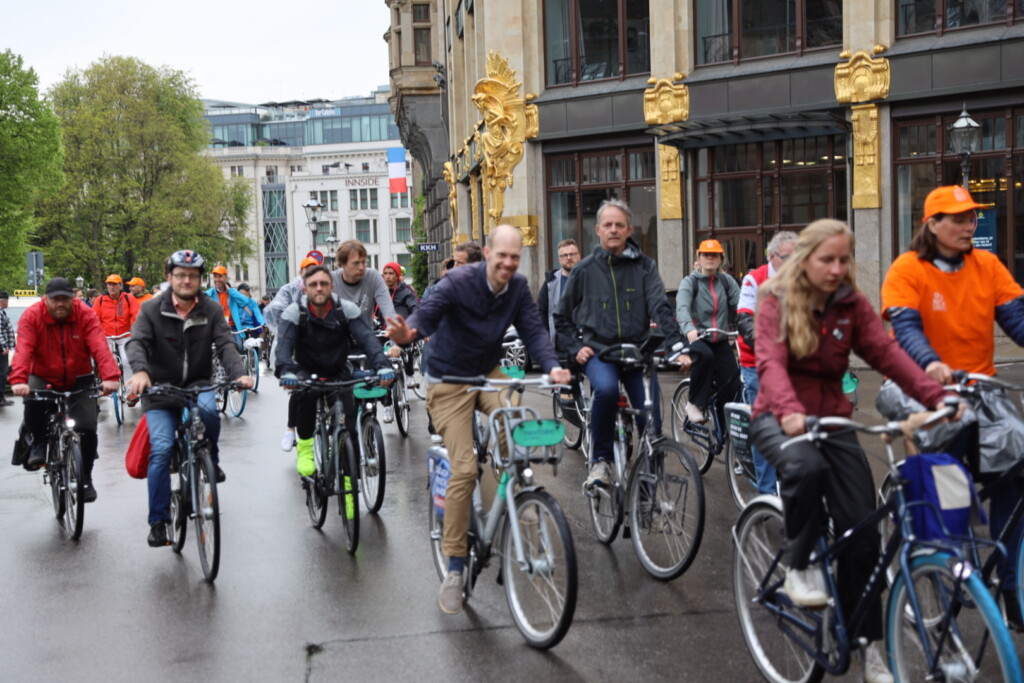
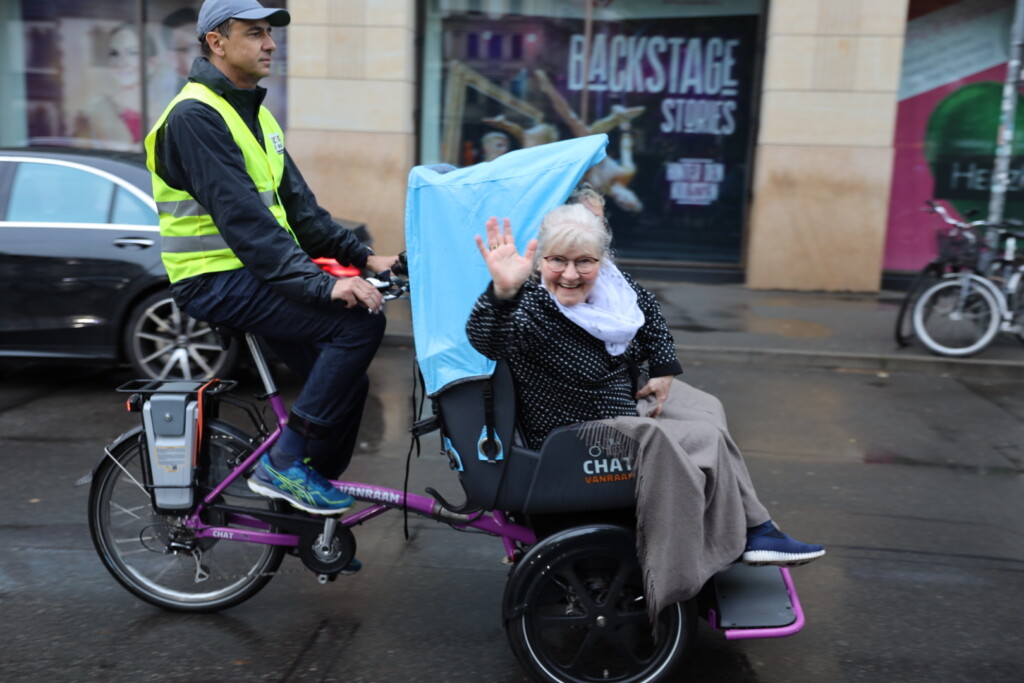
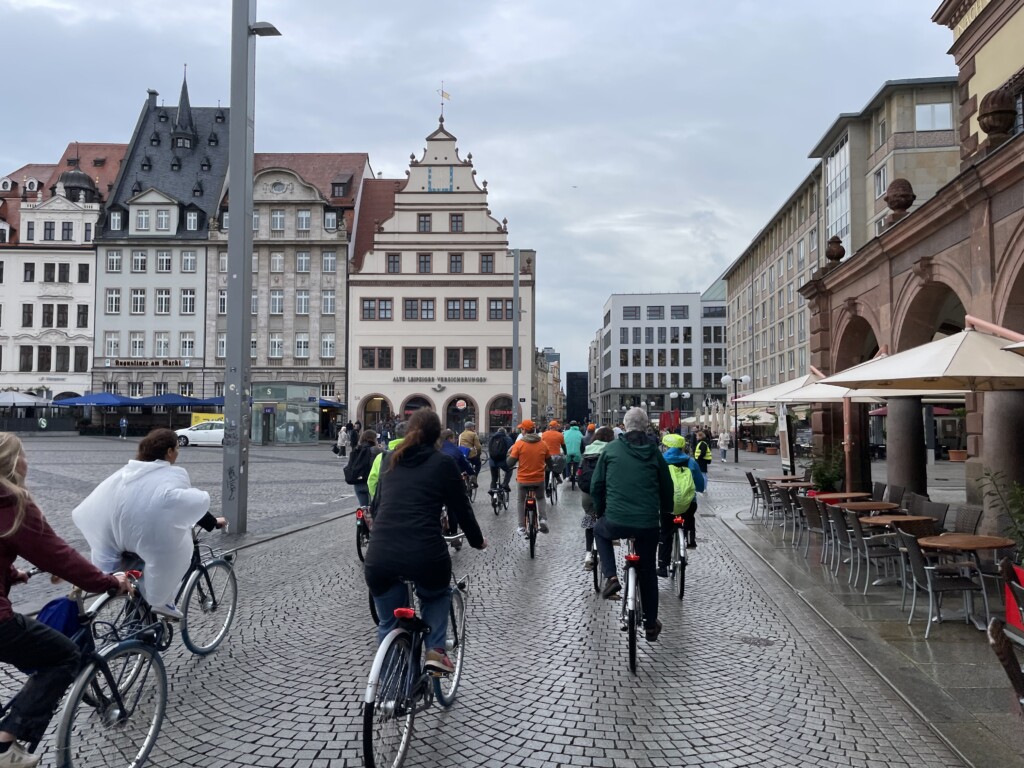
Lennart’s reflections:
As a personal highlight in the conference calendar, it was great to attend another very successful Velocity conference in Leipzig this year. This episode featured a huge variety of topics, from national strategies, the use of data, transport poverty and community advocacy to the more technical topics like traffic calming, intersection design and even a little bit of signal phasing. This is what makes this conference so exciting, and such a comprehensive collection of all things related to the topic of cycling.
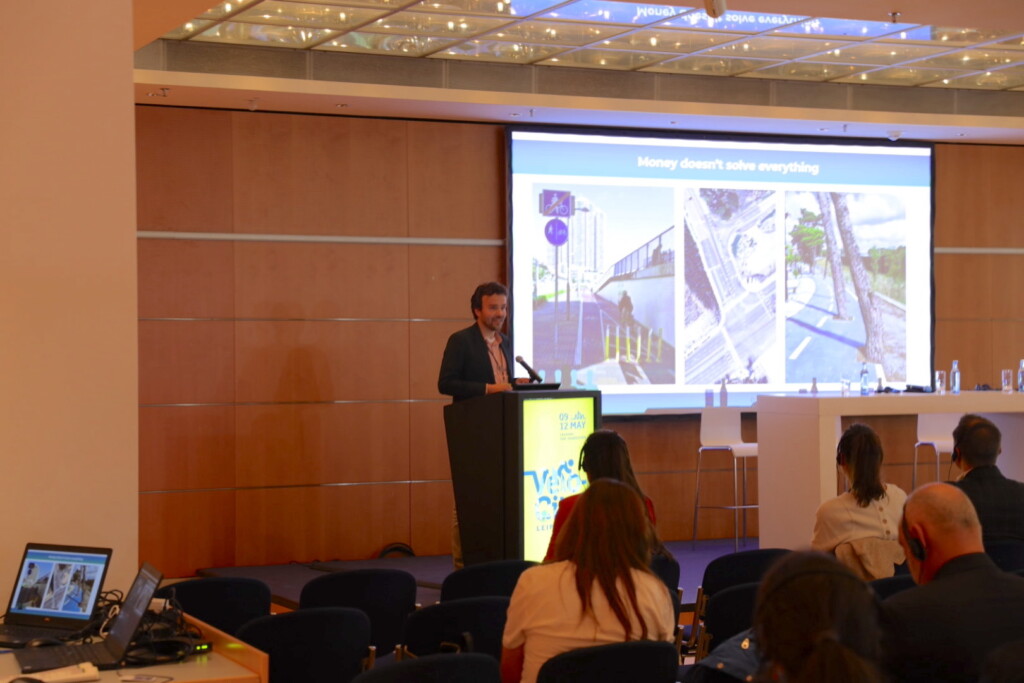
For many of the civil servants, community organisers and politicians, it will have been a warm bath to be surrounded by positive supporters for a change. Listening to other people’s successes and finding new angles to strengthen their argument. For me personally, it was great to see the full breadth of the cycling community, however, I did sense a lack of urgency in the conference. We need a lot more action in the field of cycling (and walking) in the very near term if we want to address the challenges posed by climate change. It would be great to see a bigger sense of urgency, with the conference not answering “what should we do and how do we do that”, but focus more on the questions of “how do we fasten the transition to sustainable transportation”.
A big compliment to the organizing team for creating a flawless conference, and a big thanks to the City of Leipzig for hosting all of us and welcoming us in such a big way.
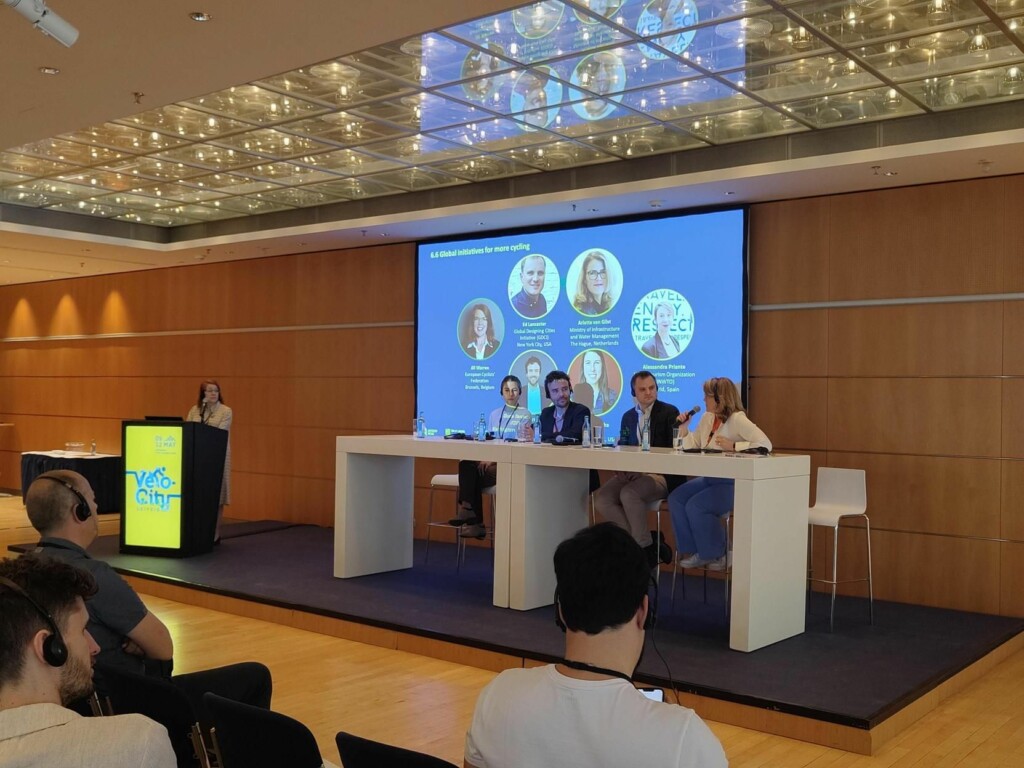
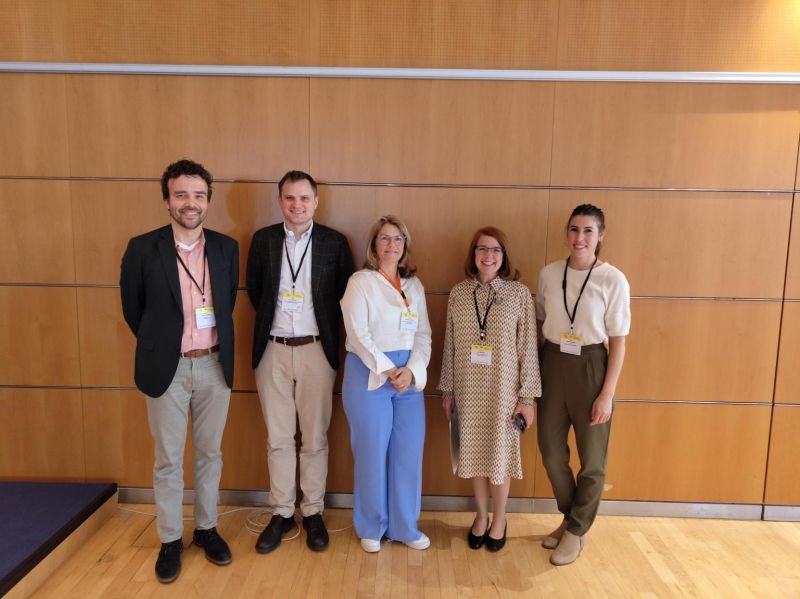
Dagmar’s reflections:
Velo-city 2023 in Leipzig not only set a new record in terms of participation, it also served as a demonstration of the global cycling community’s passion, professionalism, and perseverance.
At every Velo-city I attended so far, there have been concerns about “just preaching to the believers” and whether Velo-city is too much of a “wellness oasis” where everyone agrees rather than making an effort to enlarge the circle and involve the tech, car, and wider transport community. While critics have a point there, I observed a big need across practitioners to support and inspire one another, and to build relationships we can trust. Especially in today’s polarized world, where cycling policies can sway elections, it is vital to strengthen our community. Velo-city allowed us to. It equipped everyone with knowledge, tools, and the confidence to stand up for our values back home.
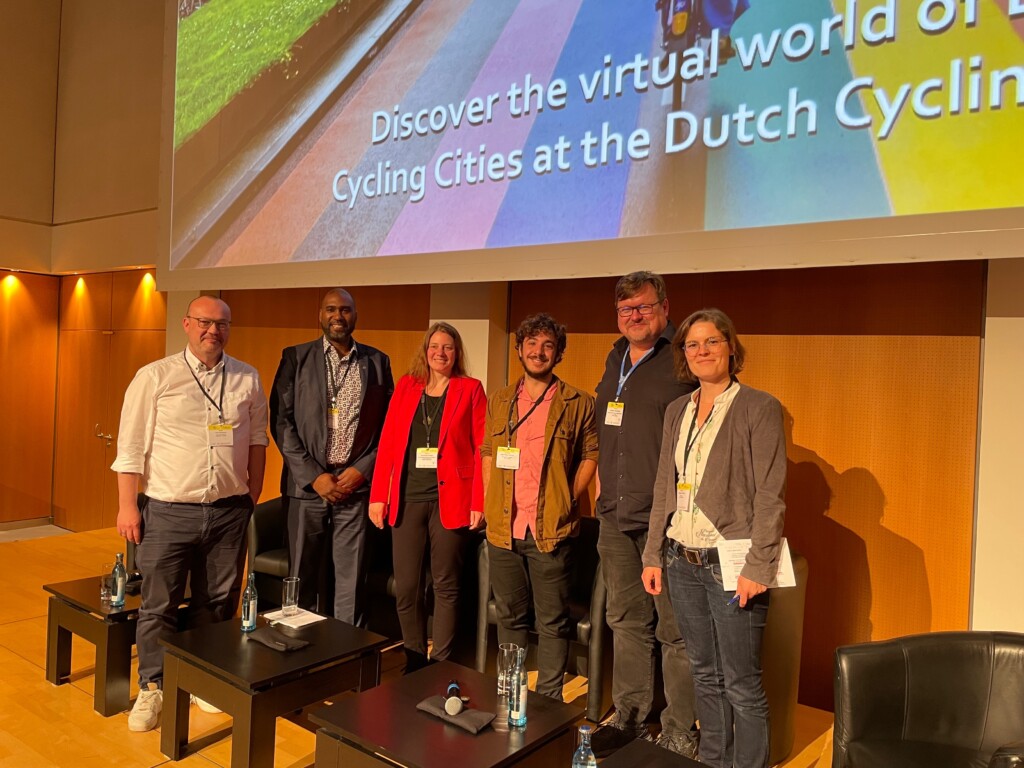
While sharing success stories is essential, Velo-citizens requested more insights into failures. However, the limited number of submissions on the session format „tales of defeat“ highlighted the challenge of openly discussing mishaps. In a session I moderated it became very clear that the way forward will not be to share endless “best practice case studies” with a focus on results but to focus on the process behind and build the capacity it needs in every context.
It’s worth noting that there was more diversity on panels this year and that the conference achieved a significant milestone with 45% of women on stage. One of the many remarkable women is Viktoriia Prokopenko whose heartfelt speech titled “The role of cycling during the war and postwar transformations in Ukraine” resonated deeply. I still get goose bumps while writing this.
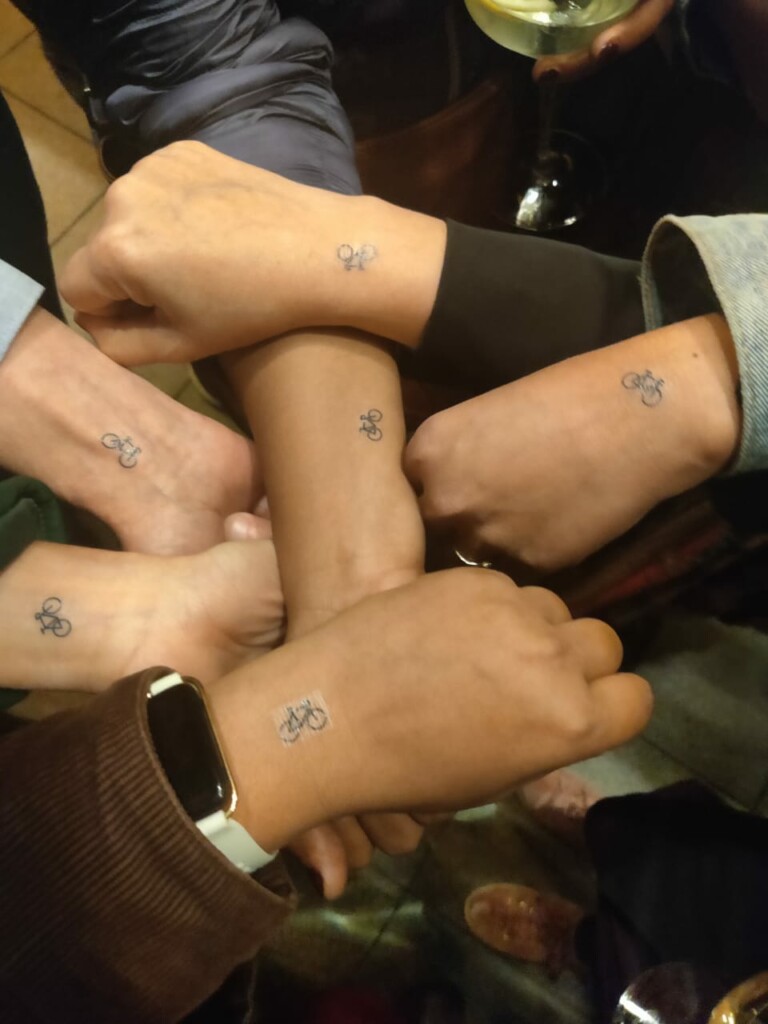
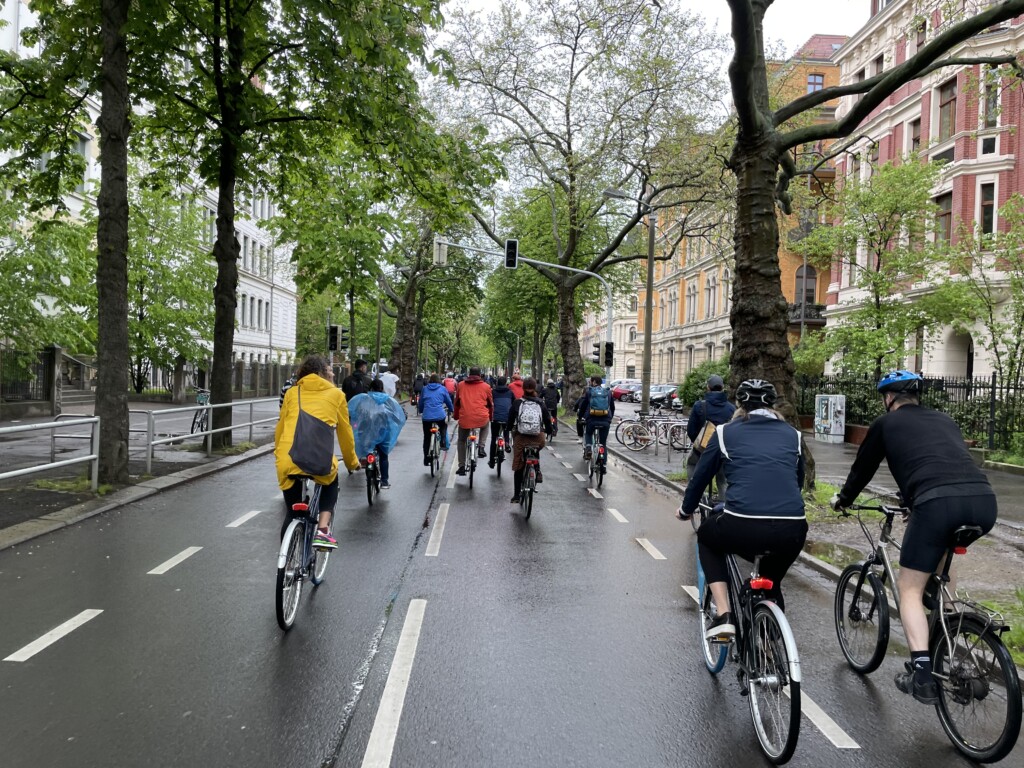
Velo-city fostered a spirit of cooperation. Host country Germany delivered its collective cycling ecosystem in a session called “Inside Germany: From car to cycling nation?” that was complemented by a reception at the national cycling association’s booth. May a permanent structure following the Danish, Dutch, Austrian and other Cycling Embassy examples become the country’s legacy of this Velo-city!
Thanks to my former role at the German Institute of Urban Affairs (Difu), I’m proud to have supported the city of Leipzig and the European Cyclists’ Federation (ECF) in the development of the conference programme. The City of Leipzig and the ECF deserve a heartfelt round of applause for their incredible dedication to serve the global cycling community with another outstanding Velo-city!
Babet’s reflections:
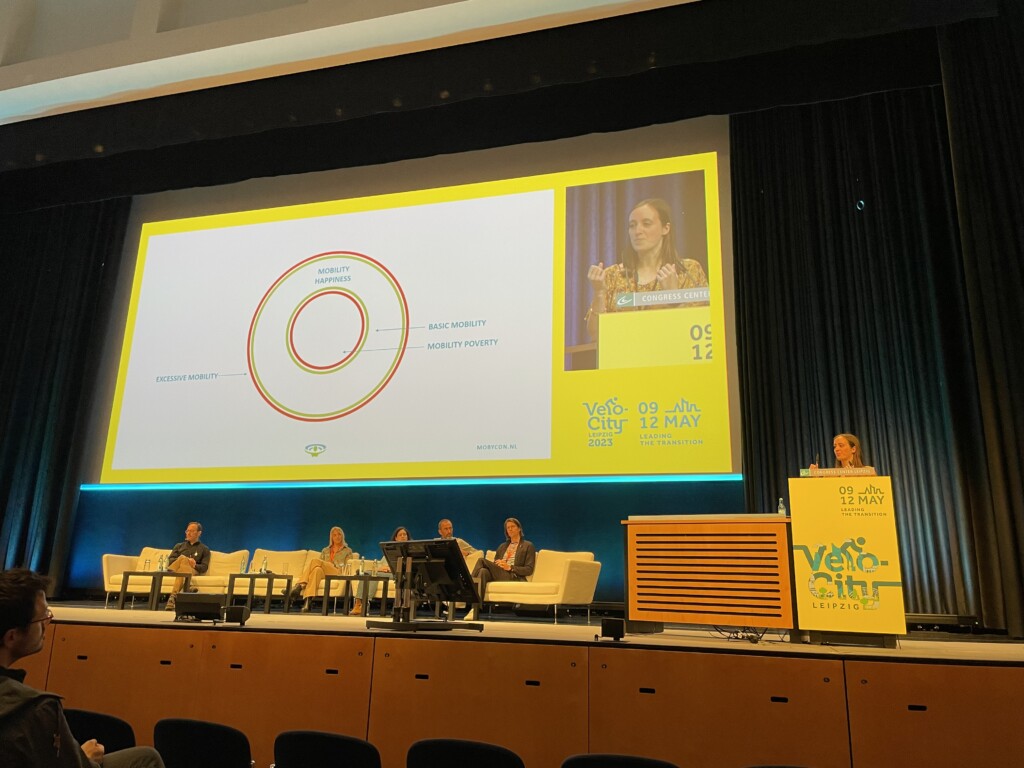
Being part of the cycling bubble for a week has given me both an energy as an inspirational boost. It’s a joy to meet familiar faces and new people.
There were several sessions around the cycling narrative discussing our general approach of interacting with decision makers, policy makers, interest groups and citizens: trying to pull them into our bubble. The discussions emphasized that we should change our narrative to appeal to the ones outside our bubble. I think it is our challenge, as cycling professionals, to connect with other sectors during velo city and throughout the year.
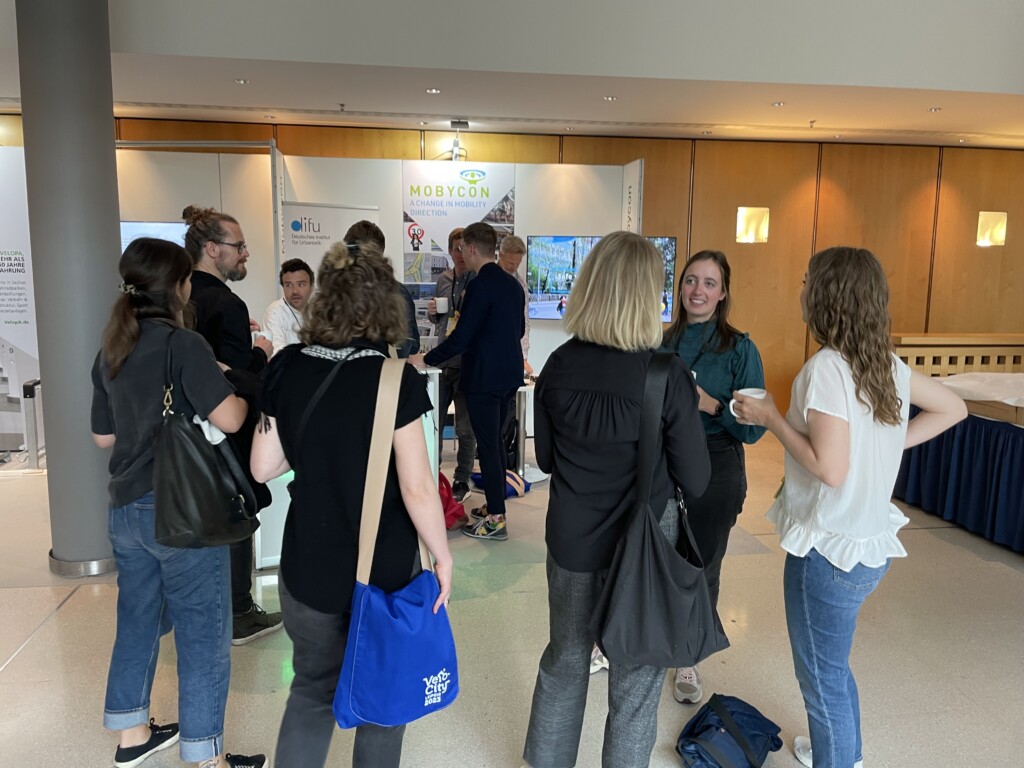
We’ve got so much to learn from communities and local organizations who just do things. Changing policy usually takes time and patience. In the meanwhile, a lot of work is done by local interest groups who find their way around policy and change our streets for the better. Hearing about these projects has inspired me a lot this conference week.
